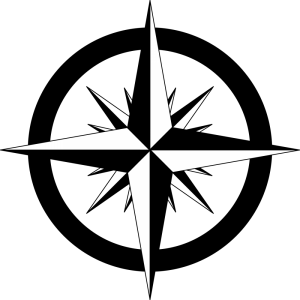Please welcome Erica Goss to our Creative Minds series! Erica is the Poet Laureate of Los Gatos and a lovely person who’s as elegant as she is whimsical. I’ve always loved reading and writing poetry, but meeting Erica at California Bookstore Day inspired me to work on my craft (and teach it to my students). Listen in as she talks about incurring traffic tickets, juggling multiple jobs, and finding inspiration in parking lots.

AS: Delighted to have you, Erica! So let’s go back in time: as a child, what did you want to be when you grew up?
EG: Lots of things: a dancer, an artist, a scientist, a mother, besides being a writer.
AS: How did you end up in poetry (versus fiction or nonfiction)?
EG: I starting writing poems as a young child. Poetry was always the most attractive literary form to me, the one I most enjoyed writing and reading. I also write non-fiction, as in creative non-fiction or memoir, but poetry was and is the most natural fit.
AS: What are some of your favorite books?
EG: That’s a hard one! The Collected Poems of Emily Dickinson, Anna Karenina, Wuthering Heights, Beowulf. I’m drawn to 19th century fiction. Virginia Woolf’s essays, Sylvia Plath’s Ariel, Wanda Coleman’s Mercurochrome – these are books that feed me. A novel that I read about once a year is Housekeeping, by Marilynne Robinson. I think Rebecca Skloot’s The Immortal Life of Henrietta Lacks is one of the best non-fiction books of the last five years. I read poetry constantly, and a current favorite is Terrence Hayes. As a child I loved Louisa May Alcott’s Little Women, and the fairy tale collections edited by Andrew Lang.

AS: Do you have another job (or more than one)? How do you balance it with your creative writing?
EG: In addition to writing, which includes poetry, blogging, magazine articles, etc., I work as a grant writer and as a freelance teacher.
AS: Wow, that’s quite a load to juggle! So when you’re writing, what are some of the most unusual places you’ve gotten ideas for poems?
EG: I have a secret muse: parking lots. For some reason, I find these sad stretches of concrete more inspiring than Yosemite. I think it’s because I like the idea of claiming a neglected space as my own, a place no one has seen the value in yet. I advise my students to find some place like that – an alley, or a dumpster, or the back of a building – and embrace it. Describe its climate and inhabitants. Do research about your place. Visit it often and note the change of seasons. Immortalize it in poetry.
AS: What is one of the funniest things that’s happened to you as you’ve spoken to audiences about poetry and writing?
EG: At Village House of Books’ Author Day, I made exactly enough selling books to pay for the parking ticket I received that day.
AS: Ooh, ouch. So do you have a daily creative routine? What does it look like?
EG: I try to be at my desk every day by 8:00 a.m. I catch my best ideas early in the morning. I write until noon, eat lunch, and then switch gears to more mundane tasks. Often I will have a burst of energy late in the afternoon.
AS: One of my other jobs is tutoring students in writing. So why do you think it’s important for students to learn to write poetry, as opposed to just essays?
EG: Poetry is a lot more fun than essays. Poetry can get students excited about writing. They know that the poem they write is a true expression of their inner life, and for that reason alone writing poetry is valuable.
AS: Anything new coming down the writing pipeline for you?
EG: My first full-length collection of poetry, titled The Museum of Moving Parts, is making the rounds of poetry publishers. I’m working on a series of poems based on the previous year of my life, tentatively called “Time Lapse.”

AS: What’s one piece of advice you would give to aspiring writers?
Turn off all distractions and read. Read widely. Start with classic fiction, then read great works of non-fiction like In Cold Blood by Truman Capote and Black Boy by Richard Wright. Read a poem every night before you go to sleep. Find an author you enjoy and read all of his or her books. Try more challenging work. Read the poetry of many eras and countries. Read travel writing, food literature, science fiction and fantasy. Read children’s books. You can’t become a writer without reading. Visit your local library and discover its gems.
Here’s a great quote from Ray Bradbury about the importance of libraries: “I spent three days a week for 10 years educating myself in the public library. You can get a complete education for no money. At the end of 10 years, I had read every book in the library and I’d written a thousand stories.”
Thank you so much for stopping by, Erica!
To connect with Erica, visit her website or Facebook.
If you’re interested in learning more about poetry, Erica will be starting monthly poetry readings at the Los Gatos Library on Sunday, September 21. They’ll be called “The Poetry Kitchen,” and each session will open with a poem about food. There will be a featured reader and an open mic.

